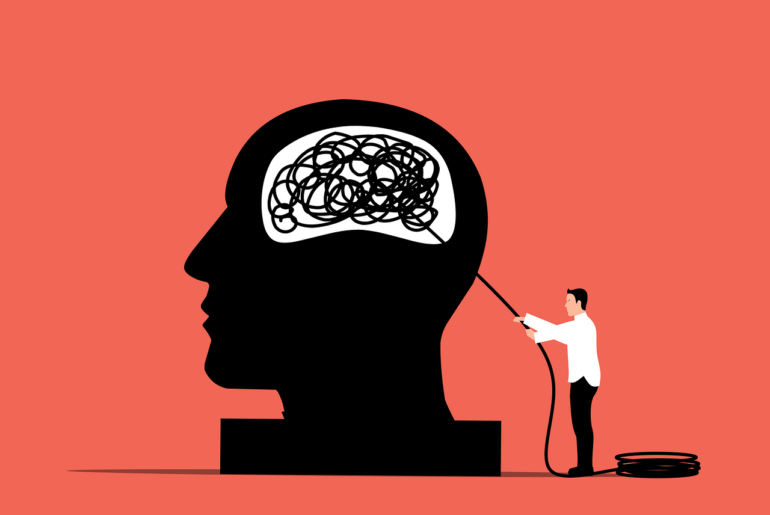Last Updated on August 8, 2024 by It’s Complicated
Editorial note: This is a guest article from We Level Up, a behavioural mental health treatment centre.
Addiction recovery is usually a lifelong battle. The National Institute on Drug Abuse (NIDA) estimates that between 40% and 60% of people with an addiction will relapse at some point during their recovery. While it’s important to understand relapse is only a part of recovery, not a sign of failed recovery, you should still do your best to avoid it. That’s because relapsing can make you feel like getting better is impossible and there’s no way to go but down. That’s not true. Certain treatments like counselling and therapy can modify behaviour patterns to prevent relapse. We outlined some of the ways therapy can help you get a hold of your addiction and stop yourself from relapsing.
Understanding Relapse
The first obvious step to preventing relapse is understanding what it means and why it happens. Despite popular belief, relapse isn’t a sudden event. It’s a process that often starts long before you decide to use the substances. As a process, it can be broken into three stages:
- Emotional relapse refers to negative feelings such as anxiety, anger, or sadness in which you’re not actively considering taking substances but may engage in actions that create the setting that might lead to relapse.
- Mental relapse occurs when you begin to entertain ideas of taking drugs again. This stage involves an internal fight, with one part of you wanting to use and the other refusing.
- Physical relapse refers to the real return to substance usage. By that point, it’s too late to go back. That’s why recognizing and addressing the early phases of relapse is critical to prevention.
The Role of Therapy in Addiction Recovery
Although recovery is technically possible without therapy or counseling, it’s very rare. Most agree therapy is essential in addiction treatment because it helps people recognize and modify the behaviors and cognitive patterns that lead to substance abuse. Various treatment techniques provide distinct tactics for avoiding relapse, improving general mental health, and promoting long-term sobriety.
Cognitive Behavioral Therapy (CBT)
One of the most common therapies in recovery is Cognitive Behavioral Therapy. CBT aims to identify and change problematic thinking processes that contribute to harmful actions. This therapy teaches people how to spot triggers, build healthy coping mechanisms, and reframe negative ideas that contribute to substance use.
Dialectical Behavior Therapy (DBT)
Another popular therapy that can modify behavior patterns to prevent relapse is Dialectical Behavior Therapy. DBT integrates cognitive-behavioral strategies with mindfulness practices to help people control their emotions and prevent self-destructive behavior. This type of therapy is very useful for those with co-occurring illnesses like borderline personality disorder, depression, and addiction. Individuals who learn to balance acceptance and change can better manage the emotional obstacles of recovery without turning to substance use.
Motivational Interviewing (MI)
Slightly less frequent but just as effective therapy type is Motivational Interviewing. MI is a collaborative, person-centered approach that increases an individual’s desire to change. It helps people evaluate their ambivalence about recovery and develop an internal desire to commit to sobriety. This method is especially beneficial for people who are first reluctant to change because it respects their autonomy and allows them to make their own decisions.
Group Therapy
When you think of therapy relating to addiction and recovery, chances are you think of group therapy. Group therapy creates a supportive atmosphere where people can share their experiences and learn from others in recovery without feeling judged. It promotes a sense of community and accountability, both of which are important in preventing relapse.
Furthermore, group therapy also offers peer support, skill development, and shared experiences. Group sessions in this type of therapy also allow people to practice social skills, get feedback, and establish a sense of belonging while in recovery. This social component can be a tremendous incentive for staying sober and developing a strong support system.
The Importance of a Dual Approach in Relapse Prevention
People who struggle with addiction often suffer from other mental health issues like anxiety, depression, and PTS as well. This is called a dual diagnosis or co-occurring condition. The best way therapy can modify behavior patterns to prevent relapse is to address both conditions at once. In other words, it’s impossible to prevent relapse by only focusing on addiction and not the co-occurring mental health issues. That’s why integrated therapy is the best course of action. Integrated therapy entails coordinated care in which addiction and mental health specialists collaborate to develop a holistic strategy.
States like California and Florida are home to some of the best centres in the country, with California holding the highest number of substance abuse treatment centres and Florida pioneering a model of addiction treatment that emphasizes community-based recovery and gradual adaptation to everyday life. They offer many rehab centers with programs specifically designed for this type of integrated therapy.
Joining a centre for behavioural health in Florida can be a great way to receive a dual approach, combining medication management, various therapeutic techniques, and holistic support to foster long-term recovery. To put it more precisely, this strategy combines pharmacological treatment for mental health illnesses with therapies such as CBT or DBT for both ailments, as well as the development of coping skills.
Understanding Root Causes of Addiction
As we already mentioned, to prevent relapse, you have to first understand relapse. However, what we didn’t mention is that you also have to understand the underlying causes of addiction so you can get effective treatment and prevent relapse.
Addiction frequently results from a mix of genetic, psychological, and environmental variables. Usually, a genetic predisposition to addiction can enhance the probability of getting it, particularly if there is a family history of drug use problems. Furthermore, psychological variables such as trauma, mental health difficulties, and unresolved emotional concerns might lead to someone using substances as a coping method.
Finally, environmental factors such as stress, peer pressure, and exposure to substance use in your community can all play an important part in addiction. By finding a therapist and investigating these causes and factors in therapy, you can start to build more effective coping techniques and lower your chance of relapse.
Understanding Your Triggers
Triggers are specific situations, persons, or emotional states that cause cravings or an urge to use drugs. They might be external, such as seeing locations or people connected with previous substance use, or internal, such as feeling stressed, anxious, or unpleasant feelings. Luckily, therapy can help identify and manage these triggers. Understanding the relationship between your most common triggers and cravings allows you to address them proactively, build resilience, and avoid circumstances that might lead to relapse.
Final Thoughts
There are multiple ways in which therapy can modify behaviour patterns to prevent relapse. No matter the type, the power of therapy lies in its ability to foster self-awareness, resilience, and lasting change. With the right therapeutic support, you can break free from the cycle of relapse and build a fulfilling, sober life.
Resources:
https://nida.nih.gov/publications/drugs-brains-behavior-science-addiction/treatment-recovery
https://www.ncbi.nlm.nih.gov/pmc/articles/PMC6760427
https://www.nytimes.com/interactive/2017/12/27/business/new-drug-rehabs.html
https://www.statista.com/topics/3997/substance-abuse-treatment-and-rehabilitation-in-the-us
Lauren Barry is a licensed marriage and family therapist specialising in addiction and recovery. As a National Director of Quality Assurance at We Level Up, a behavioural mental health treatment centre, she dedicated her life to helping others struggling with substance abuse get the help they deserve.
Advantages of Discovering Your Therapist via It’s Complicated
- No Setup Costs: Creating an account and reaching out to therapists is entirely cost-free.
- Transparent Pricing: You’ll only pay the session fee, with no concealed booking fees.
- Precise Search: Utilise our robust search tool to pinpoint therapists based on your specific preferences.
- Thorough Listings: Easily explore therapists categorised by their specialty, approach, location, and language.
It’s Complicated is a therapy platform that not only helps clients find their perfect therapist but also supports therapists in their craft of helping others. Featuring over 2,000 mental health professionals from 80+ countries, counselling is available in almost 100 languages, both online and in person. A GDPR-compliant video solution, encrypted messaging, and easy invoicing guarantee a private and seamless counselling experience for therapists and clients alike. If you are in a serious crisis and need urgent help, please use one of these resources instead.





Comments are closed.